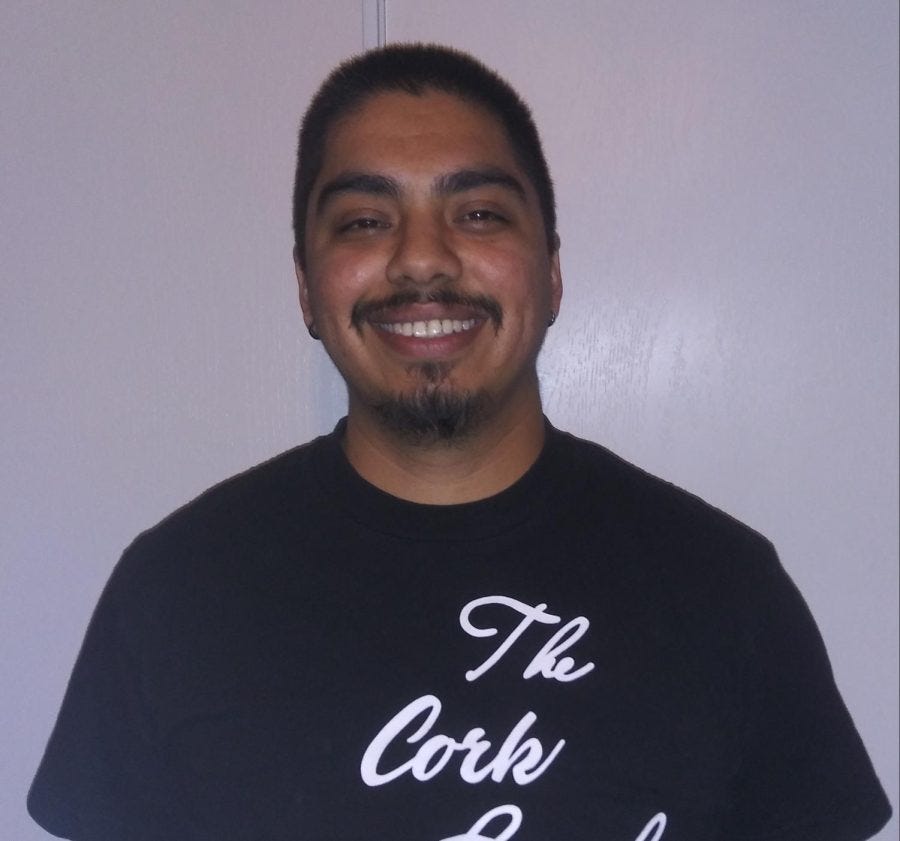The light at the end of the tunnel
How I left my Jehovah’s Witness home and eventually found my passion
Russell Navarrette wrote this article for Cal State LA’s University Times. It is available for republication or reference.
The day I turned 18, my parents kicked me out of the house.
I had been gone for two days. I was making an attempt at a good gesture for my parents. My mistake was asking my aunt for a haircut, while she had her new boyfriend around, instead of going to a barbershop.
My sister was bringing me home. When she pulled into the driveway, I had a feeling something was going to go down. So, I asked her not to leave, just in case.
I got out of the car and walked up to our home.
I took one step through the door and before my next step, my dad stopped me.
He pointed outside and said, “Leave and go back with whoever you came with.”
I had no chance to explain why I was gone.
I understood. That’s why I did not plead my case to him.
My childhood as a Jehovah’s Witness
It was difficult growing up in a Jehovah’s Witness household. As a child, I did not question anything because I was born into it. I knew nothing else but that.
At 7-years-old, I would go on stage and give “talks” based on the Bible and the teachings of the Jehovah’s Witness religion. By the time I was 10, I became an unbaptized publisher, which is the first step before getting baptized. I was on my way to becoming what my parents hoped and prayed I would be—a devoted Christian.
It was a dream of mine to one day play in the NFL. I loved football. It was my favorite sport. Myself, my brother and our neighbors would play in the street or in someone’s yard. Even my friends from church would get together during football season to play. I loved to imagine myself as being an all-time great wide receiver.
I was in fifth grade, and football tryouts were beginning. With my head full of fantasies and high hopes, I asked my parents if I could join.
They said, “No.”
That initial “no” would be the start of my religious decline.
It made me think about activities that I could not do because of my family’s religious beliefs such as celebrating holidays and birthdays—not being able to go to school dances—not even doing extra-curricular activities at school.
None of that bothered me until I was denied a shot at my dream.
I became angry, depressed, and rebellious. By the time I was in high school, I was always getting into trouble. I would either come home late after school, or ditch school completely. I had 25 or more absences on my report card in at least three of my classes.
I became a distraction at church. It got so bad that the elders of the congregation requested not to bring me anymore. Eventually, I was removed as an unbaptized publisher.
A new life
One day, as a 26-years-old, I sat crying and heartbroken in the back of my van that I bought for $500.
Reflecting on my 20s — living in different cities, relationships, drugs, and parties — I realized none of that came to save me. Not that I necessarily needed to be saved, but I was tired.
Tired of fighting, tired of instability, and tired of having nothing to look forward to. So, in the back of that old 1994 gray Dodge Ram van, with chipped paint and would shake when you drove faster than 40 mph, I made a decision.
I made a decision to finish school and begin my new path, pursuing a new passion—a new dream.
I found literature. I found writers like Iceberg Slim, Charles Bukowski, Jack Kerouac, and even Bob Dylan.
In this, I found inspiration to hold onto. Something that I can do, something that I enjoy.
In some ways, having to leave my home was probably the best thing that could have happened to me. Through all the ups and downs, I found myself and created a fire in my heart that wants to burn bright.
Community News produces stories about under-covered neighborhoods and small cities on the Eastside and South Los Angeles. Please email feedback, corrections and story tips to UTCommunityNews@gmail.com.




